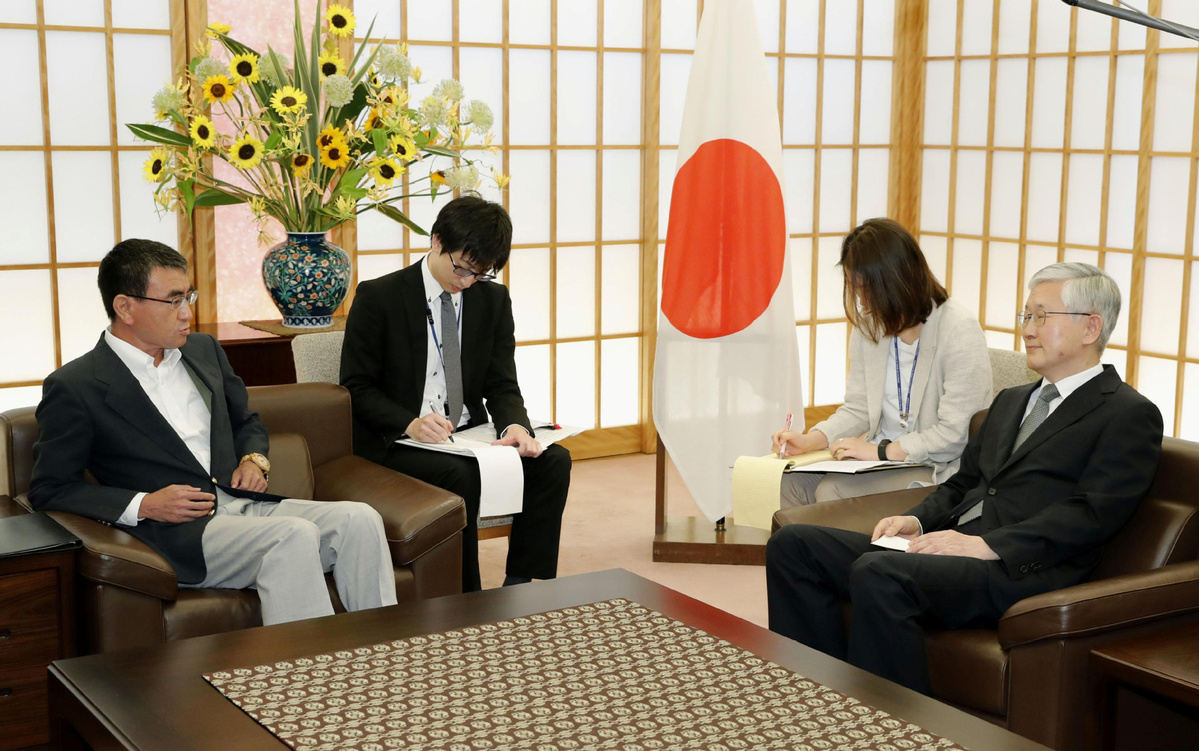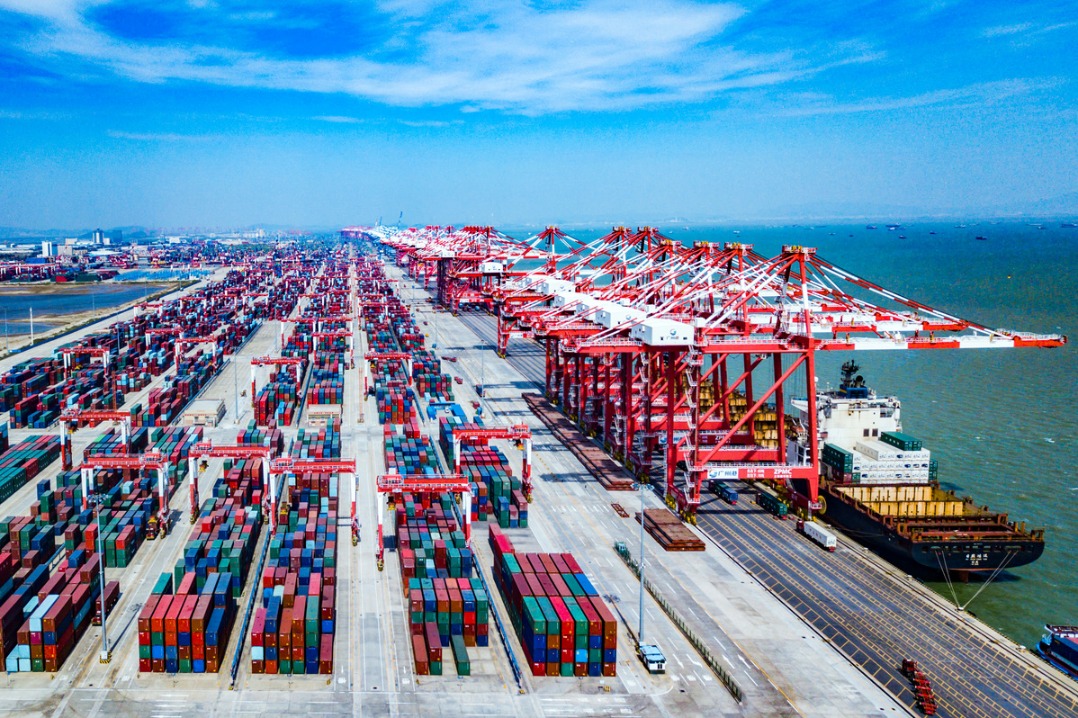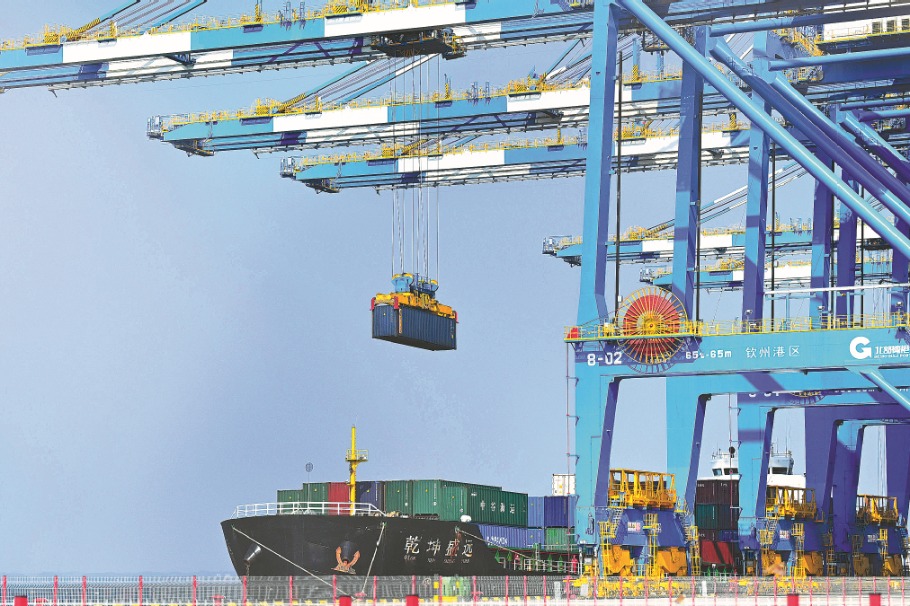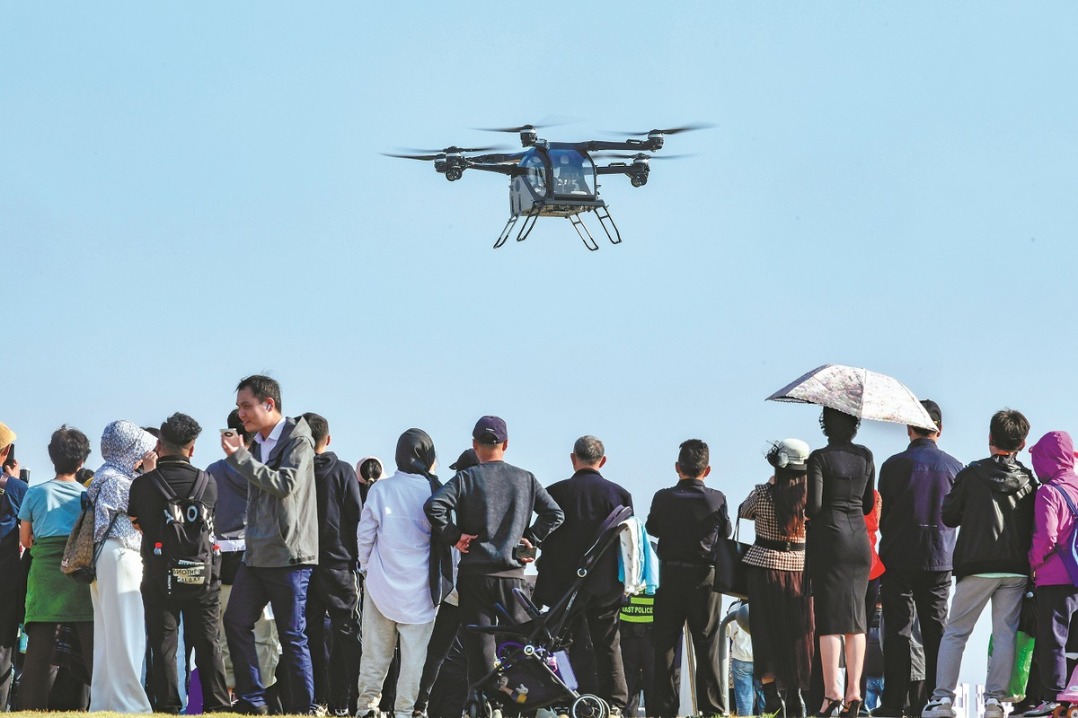Japan summons S. Korean ambassador to lodge protest over wartime labor row
Xinhua | Updated: 2019-07-19 13:27

TOKYO -- Japanese Foreign Minister Taro Kono summoned South Korean Ambassador to Japan Nam Gwan-pyo on Friday to lodge a protest over Seoul regarding a wartime labor dispute.
The Japanese side believes Seoul has missed a deadline to establish an arbitration panel to settle the dispute over wartime labor.
Kono told Nam that Seoul refusing to cooperate with the arbitration process was "unfortunate" and that in not doing so, South Korea remains "in violation of international law."
Nam, for his part, said he would convey Kono's message to the South Korean government. The South Korean envoy also said he hoped that Japan would reconsider its proposal for companies from both sides to contribute funds to compensate victims of forced wartime labor.
In June, South Korea initially proposed that companies from both countries fund compensation for the plaintiffs, but Japan spurned the proposal for further dialogue on the matter in this direction.
Relations have soured between both parties as Tokyo believes Seoul has not cooperated in trying to resolve the row bilaterally, or by way of the establishment of an arbitration panel involving a third party.
South Korea's top court, meanwhile, has ordered some major Japanese firms to compensate South Korean plaintiffs over forced wartime labor during Japan's 1910-1945 occupation of the Korean Peninsula, with lawyers being allowed to seize the assets of some major Japanese firms.
The government here has said that if Japanese firms are harmed by South Korean lawyers going ahead and liquidating the firms' assets, then Tokyo would respond.
Japan believes the rulings by South Korea's top court are not in line with international law and run contrary to the foundation of friendly and cooperative relations between the two neighbors since the 1965 normalization of diplomatic ties.
Japan also thinks the matter of compensation for wartime labor was "finally and completely" resolved under the pact.
Tokyo has claimed that Seoul has been reluctant to show willingness to advance talks on the matter through diplomatic channels, with Seoul seemingly, from Tokyo's perspective, disregarding a prior deadline as well to name a member to an arbitration panel, along with Japan and a third country, and, hence, has sought outside arbitration on the issue.
On Friday, meanwhile, Nam criticized Tokyo for slapping tighter export controls on high-tech materials bound for South Korea to be used in smartphone and TV displays, and semiconductors.
"Japan's unilateral measures are hurting the people and companies of both countries," the South Korean envoy said.
South Korea believes the tightening of export controls was in retaliation for Seoul not cooperating with Tokyo on settling the wartime labor dispute.
Japan maintains, however, that the tighter export controls are not retaliatory in nature and the new measures are a matter of national security.
























